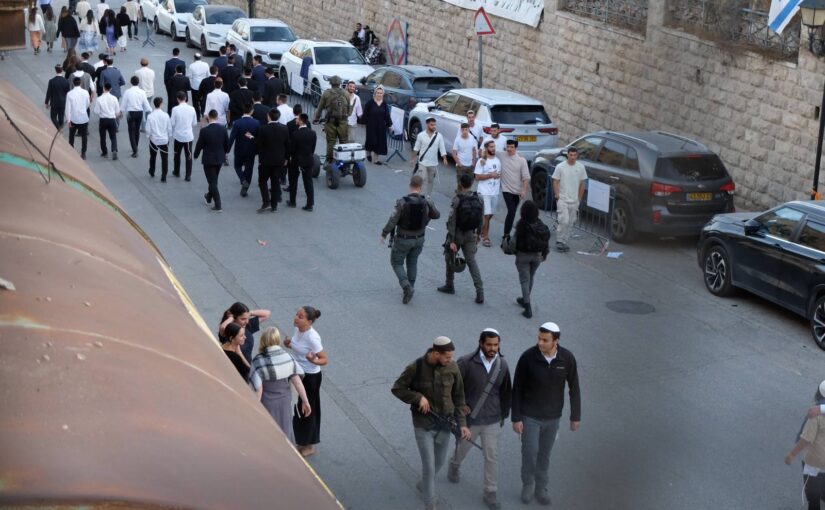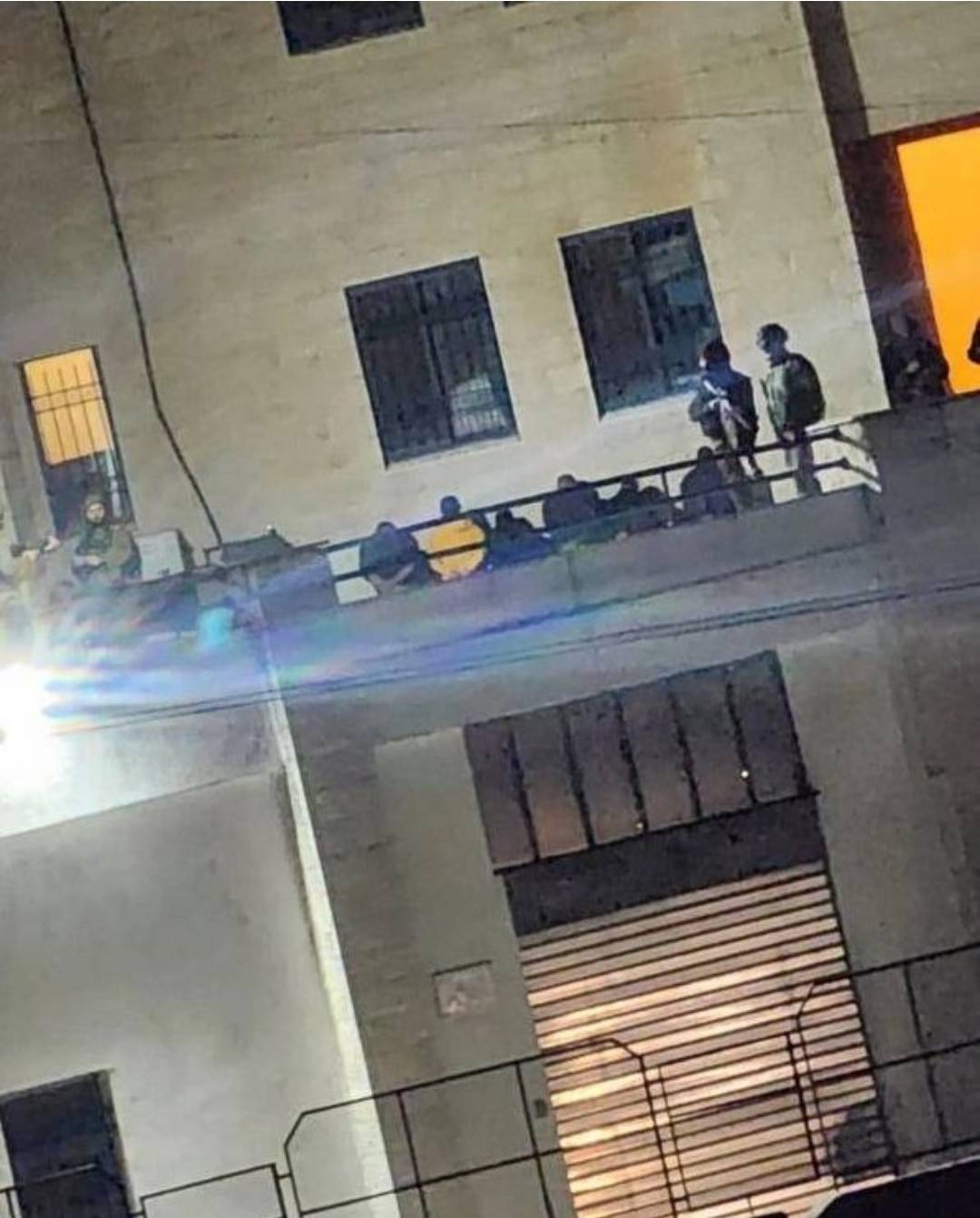Tag: Al Khalil
-
Settler Harassment During “Shabbat Chayei Sarah” in Al-Khalil
November 21/ 22 – Al-Khalil Music, songs, dancing, prayers and alcohol. This could chracterize a common religious festival anywhere – were it not being used as an excuse for Israeli settlers to attack and raid the Palestinian community, which is already living under segregation since 1997, in the city known as al-Khalil for the Palestinians and…
-
UPDATE on Gaza Workers: 900 arrested by Occupation forces in West Bank
We have heard that 900 of the Gazans working in Israel have been arrested over the past two days. Amongst those detained are 30 of the 45 men we saw in Hebron. They were arrested by the Occupation forces on the night of October 16 – 17. Some Gazan workers had been welcomed in a…
-
Attacks and disruption in Al-Khalil as settlers celebrate Sarah’s Day
December 29 | International Solidarity Movement | Al-Khalil Around 30,000 settlers gathered in Al- Khalil (Hebron) on Saturday, November 19, to celebrate Sarah’s Sabbath and wreaked havoc in the Old City market, attacking Palestinians and their shops, houses and destroying cars. This happened under the watch of the Israeli army who cordoned the area so…



